Premier Annastacia Palaszczuk announces youth justice reforms after Emma Lovell murdered in home invasion
Premier Annastacia Palaszczuk has announced a comprehensive overhaul of Queensland’s youth justice laws in the wake of Emma Lovell’s home invasion murder.
News
Don't miss out on the headlines from News. Followed categories will be added to My News.
Queensland’s youth crime laws will be among some of the toughest in Australia under comprehensive reforms in the wake of Emma Lovell’s brutal stabbing murder, Premier Annastacia Palaszczuk announced today.
Ms Lovell, 41, was allegedly murdered while defending her North Lakes home from teenage home invaders on the evening of December 26.
The Youth Justice Act will be amended to mandate that courts take into account previous bail history, criminal history and track record when sentencing youth offenders.
The maximum penalty for stealing a car will increase from seven to 10 years’ imprisonment, while a more severe penalty of 14 years’ jail will be introduced for offences committed at night.
Ms Palaszczuk also announced increased penalties for criminals who “boast” about crimes on social media along with $9.8 million of funding to “fast track sentencing”.
“These are tough measures, they will be put in place,” Premier Annastacia Palaszczuk said.
The state government has also vowed to build two new youth detention centres, and will trial engine immobilisers in Mt Isa, Cairns and Townsville.

“Community safety has to come first here, we stand with the Lovell family and the community,” Ms Palaszczuk said.
The government has confirmed the increased penalties will apply to youth offenders as well.
“Crime, especially youth crime, is a complex issue but community safety must come first,” Ms Palaszczuk said.
“All of the programs to divert children away from crime will continue but the community is demanding tougher penalties too.”
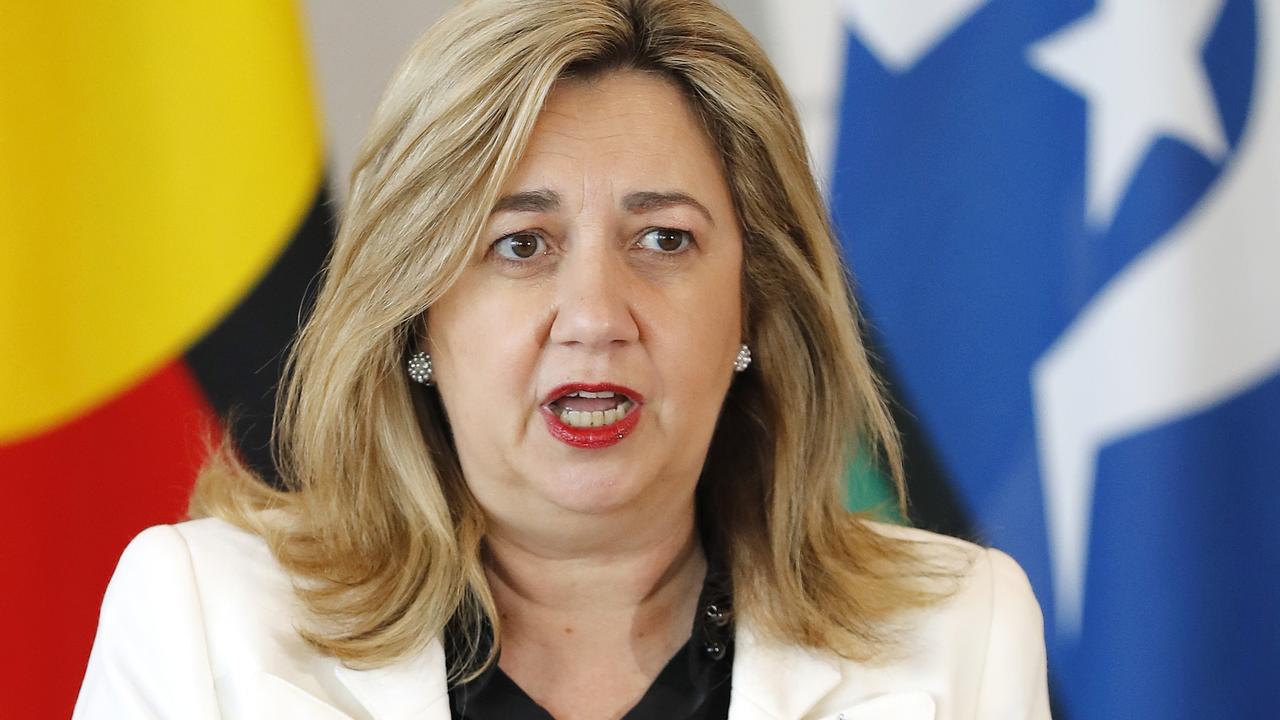
Ms Palaszczuk said some people weren’t going to like her changes.
“A lot of people aren’t going to like some of these announcements today, but I’m going to stand by them.”
Asked about whether these reforms could have prevented the death of Emma Lovell, Ms Palaszczuk said “I can’t go back and predict what could or could not have happened – I think every family in this state absolutely feels for the Lovell family.
“No one wants to lose a family member under those circumstances.
“The courts need to do their job.”
Ms Palaszczuk said the government would “stress” in the youth justice act that courts need to consider bail history.
She said one new detention centre would be based in Cairns, which had already been announced, and another in the south east.
She said Wellcamp was “not suitable” to be a detention facility.
When asked if “Emma’s Law” would be considered by the government, Ms Palaszczuk responded: “The suite of reforms that we have announced today, I believe will give reassurance to Queenslanders that we are listening and that we are acting.”
A petition has already amassed more than 27,000 signatures in support of “Emma’s Law”.

Ms Palaszczuk said the government had not come up with the changes overnight.
She said the changes will be introduced when parliament resumes in February. Ms Palaszczuk said she hoped the Opposition would help “fast track” the changes when parliament resumed.
Police Minister Mark Ryan said the changes were now among the “toughest in the nation”.
George Marchesini will be appointed as the Assistant Commissioner, Youth Crime Taskforce Commander.
Mr Marchesini has worked in the Queensland Police Service since 1988.
He has served a variety of different roles with particular interest in child protection.
Mr Marchesini was awarded the QPS Meritous Service Medal for his contribution to the area of child protection in 2018.
Police Commissioner Katarina Carroll said she expected him to work full-time on addressing the changes.
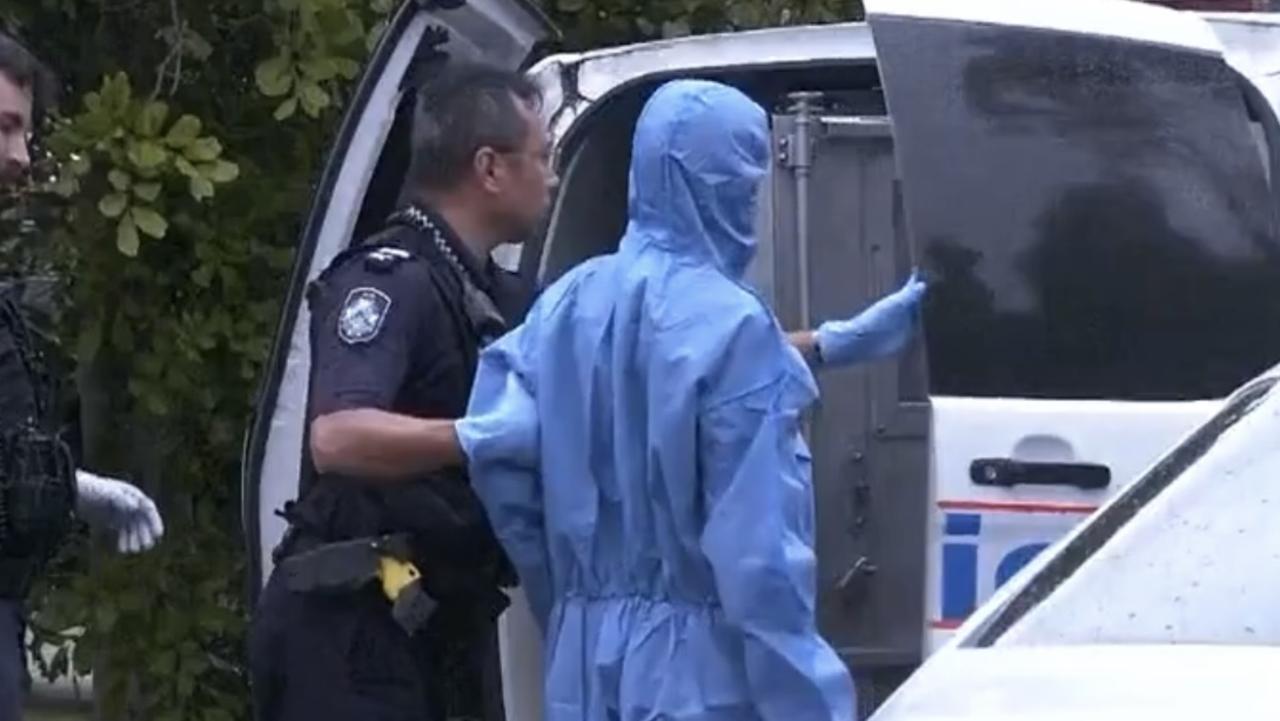
Ms Carroll said in the past 10 years the population of children had increased by about 80,000, while the amount of offenders had decreased by about 4000.
“So we know that 90 per cent of children that come into the system are diverted, are dealt with very effectively, cautioned, those strategies and initiatives been extraordinarily successful over many years,” she said.
“However we also know that that small percentage of about 5-10 per cent are committing up to 50 per cent of the crime.
“And some of that crime as we know is serious, high-end, offending. And it’s this group that we need to deal with the most into the future.”
Bond University criminologist and former police detective Dr Terry Goldsworthy said the announcement was “better than nothing”.
“There is still no breach of bail offence for youth offenders and this needed to be a cornerstone of any response,” he said.
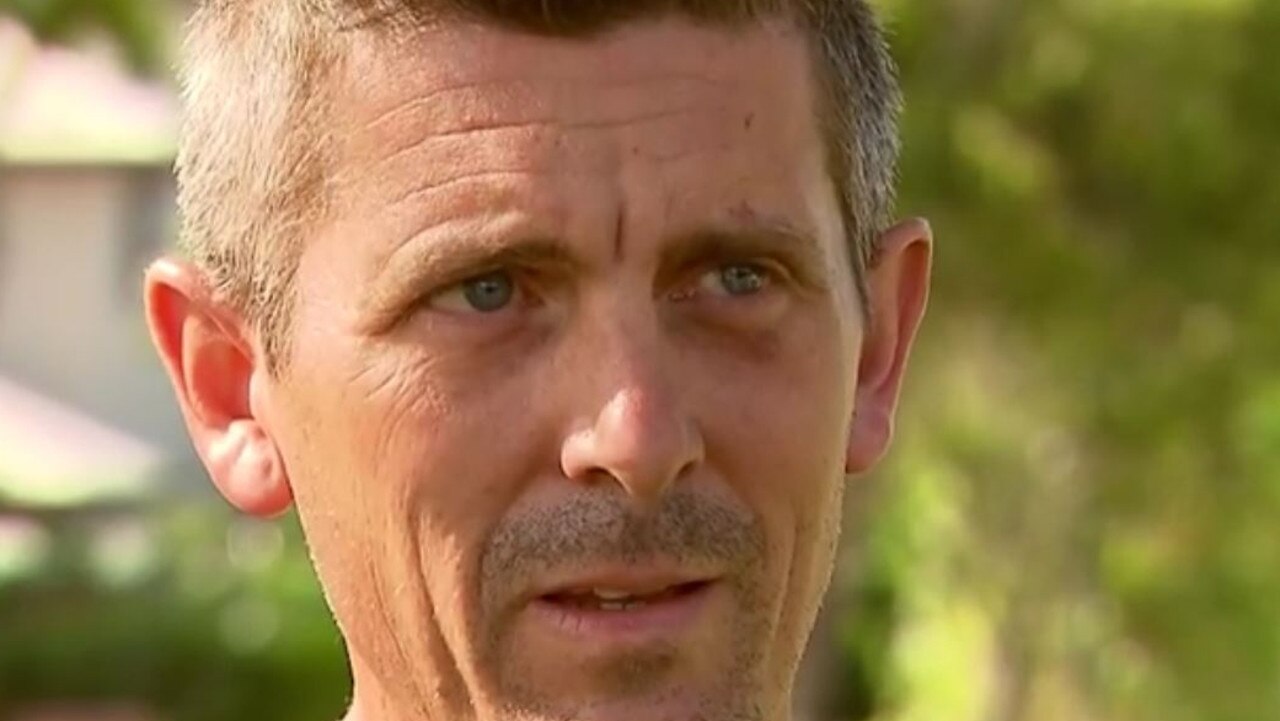
“It is a missed opportunity by the government to clamp down on the bail issues that have clearly become the spotlight of serious youth offending in Queensland.
“There is no mention of additional staff for the Assistant Commissioner of the Youth Crime Taskforce. From the comments of the QPS Commissioner it sounds like one person in an overview role, the same kind of model that was heavily criticised in the domestic violence inquiry.
“There should have been an announcement of a dedicated investigative capability that can focus on the recidivist offenders.”
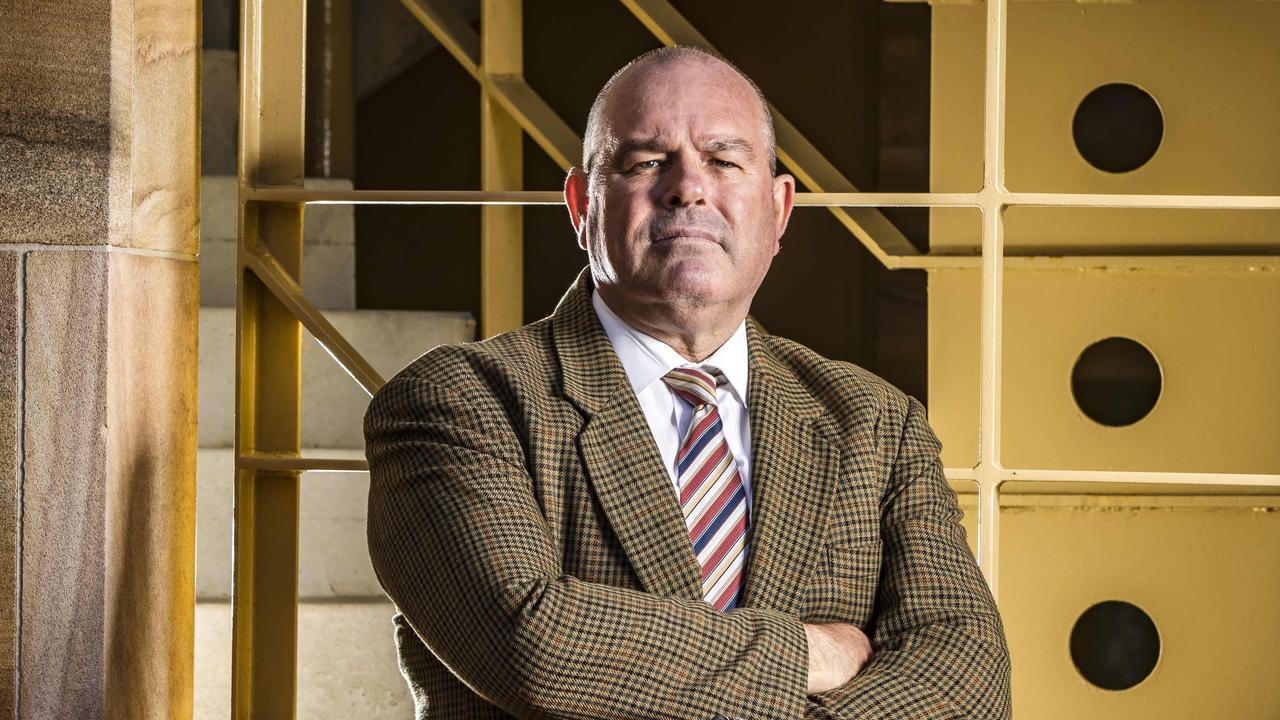
Dr Goldsworthy said there was no detail on the social media penalties and if they were new offences or “simply be a circumstance of aggravation on existing offences”.
“And if so what are the penalties?” he said.
“The term ‘track record’ is unclear in what it actually encompasses in legal terms, similarly what does the phrase ‘criminal activity’ mean? Does that include only proven offences or offences where they were listed as a suspect?
“Overall there is little substance to the responses that will make much difference I think, it is more window dressing than anything.”
High-profile solicitor Bill Potts said the government was “not only renumbering, but also renaming the deck chairs on the Titanic” with its new measures.
When asked about the government’s plan to amend the Youth Justice Act to require the courts to take into account bail history, criminal activity and “track record” when sentencing, Mr Potts said it already happened.
“They already take them into account, both under section 16 of the Bail Act and also section 9 of the Penalties and Sentences Act,” he said.
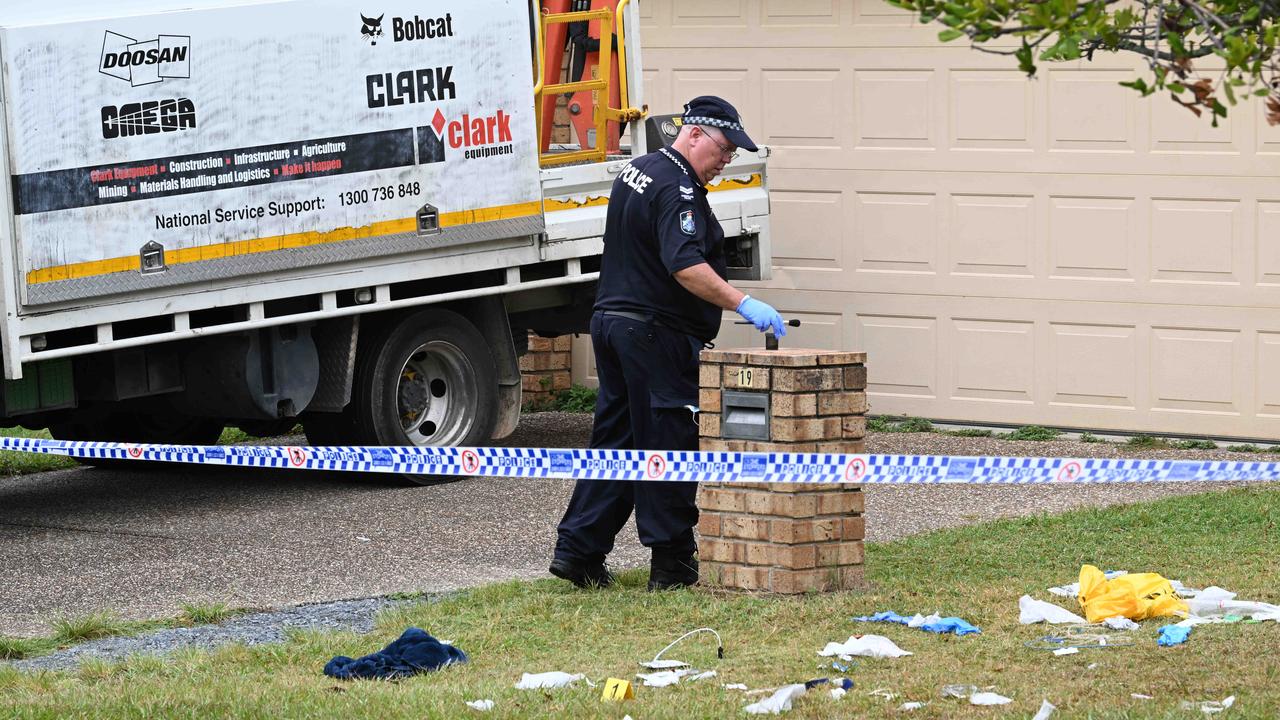
Mr Potts also criticised amending the maximum penalty for stealing a car.
“We know a 15-year-old at 2am in the morning, perhaps it is not forefront of their mind the extra penalty of adding three years to the charge of stealing a car,” he said.
“So the object of the law, if it’s to deter that individual or other like-minded people, it is just a sheer and utter cynical attempt at public relations rather than being serious about crime.
“Similarly we know that renaming an assistant commissioner is all very well but we know that the only thing that deters people from committing crimes is the sure and certain knowledge that they’re going to be caught.”
Mr Potts said if criminals broke into homes, it was difficult to get police to examine the home or even send a crew there.
“The police do not have the resources to investigate crime scenes so we’re now expected to believe they are going to be targeting high-profile criminals with a view to catching them – it just doesn’t make sense,” he said.
“They (elected officials) are making motherhood statements and saying some people aren’t going to like it. Well, the reason people aren’t going to like it is because the measures are utterly ineffective window dressing, announced for the purpose of seeming to do something.
“The appearance of substance but the absence of anything worthwhile. It is just a sheer utter nonsense. It is a floundering attempt to impress a cynical public that they are actually doing something. They are not.”
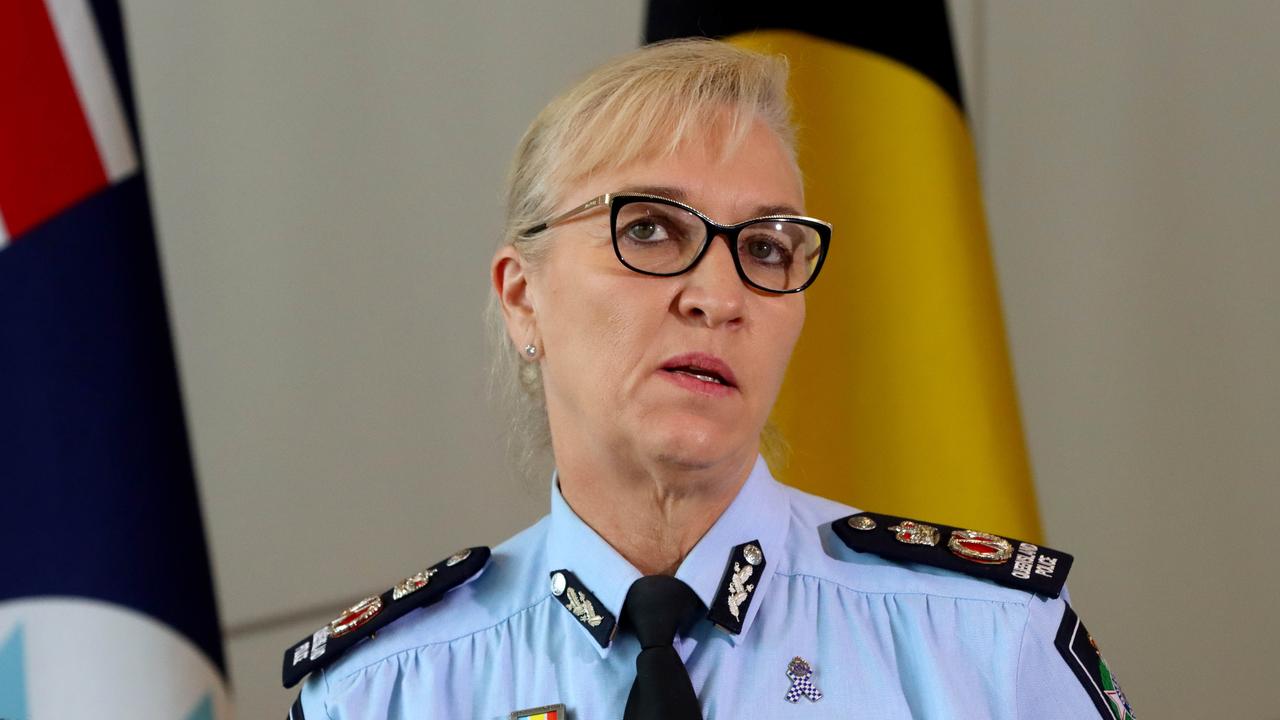
Mr Potts said one important step would be to announce further funding for extra police and resources.
“But it’s not the failings of the police, it’s not the failings of the law, it’s actually a failing of the government to have any vision to tackle what is a complex, difficult, problem.
“It is very easy and cheap to change the law, to increase the penalties. It is expensive and time-consuming to make the brave decision to tackle the causes of crime and they are not prepared to do it.
“They’re failing the Queensland public as a whole because of this short-termism.”
Earlier, Opposition leader, David Crisafulli called for parliament to recall as soon as possible to address youth crime.
“Queenslanders are scared, they’re angry and they are living through a failure of legislation and a failure of leadership, and they are calling for action,” Mr Crisafulli said.
“We are asking the government to recall parliament in January, within the next little window, to show youth crime matters, to show a generation of repeat offenders we have had enough.
“We want breach of bail to be made an offence immediately.”
Mr Crisafulli said the breach of bail amendment was his top priority, with other amendments to be discussed after, including early intervention.
“I can assure it will pass the parliament if the government throws its weight behind,” Mr Crisafulli said.
“We can debate a swing of measures, let’s sit down with police, victim groups, everyday Queenslanders, let’s develop the best youth justice act in the nation.”
Parliament is scheduled to return on February 21, 2023.
When asked if he would support the push for legislative change, Prime Minister Anthony Albanese said he believed Queensland Premier Anastasia Palaszczuk would respond “appropriately”.
“There is justifiable community outrage and that is perfectly understandable and I’m sure that the Palaszczuk Government will respond appropriately,” he said.
More Coverage
Originally published as Premier Annastacia Palaszczuk announces youth justice reforms after Emma Lovell murdered in home invasion





